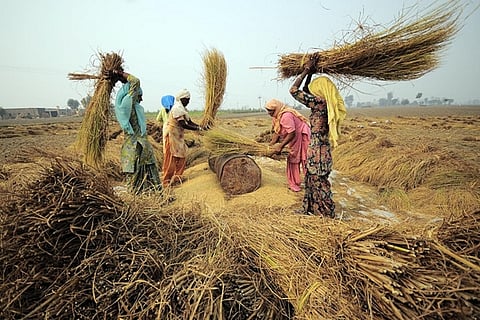Ambitious agenda for food security
The National Food Security Act is one of the most prominent pieces of legislation passed by the Indian Parliament in recent times. The passage of the Act is the culmination of a long process that started with the case filed by the People's Union for Civil Liberties (PUCL) in April 2001, which pointed out the general need to recognise the right to food as flowing from the right to life enshrined in the Indian Constitution. Notwithstanding the numerous valid criticisms that have been levelled against the Act, it is an important piece of legislation directed against the twin curses of hunger and malnutrition that still plague India. But before weighing the merits, it is worth asking why the Act is actually needed at all? And, what is different about this new legislation?
Hunger and malnutrition statistics in India leave little doubt about the need for drastic measures. In the 2013 Global Hunger Index, India is ranked 63rd out of 78 countries. The Hunger and Malnutrition (HUNGaMA) Report 2012 that covered 112 districts across some of the poorest states in the country estimated that 42 percent of the children below five years of age were moderately or severely underweight. The India State Hunger Index rated 14 states in 2008, and placed 12 in the 'Alarming' category and one in the 'Very Alarming' category. India is also home to an overwhelming number of underweight and stunted children and anaemic women according to the National Family Health Survey-III. All these statistics point to the need for strong measures to combat hunger and malnutrition.

